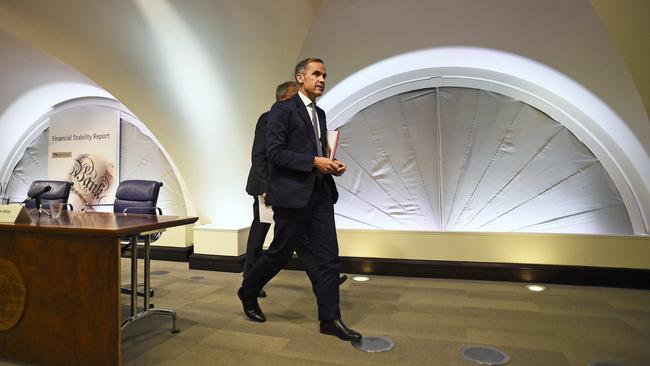Brexit reveals the dangers of property trusts
Unlisted funds are expected to stay frozen for months.

Just when they had regained their mojo — if not quite their respectability — a frisson of fear has run through the Australian property trust sector as news filters through from Britain of the spectacular effect Brexit has triggered on that country’s property trusts.
Inside a week a remarkable 50 per cent of retail funds in the British commercial market have been frozen as investors rush to take money out of Britain.
In what must now seem like a recurring nightmare for overseas investors, some of the biggest names in property funds — including Standard Life, Henderson, Aviva and a string of related operators — have simply ‘‘gated’’ their funds and they are expected to remain closed for months.
This is the second time this has happened in less than a decade.
There is no evidence yet that the Brexit drama has spread to Australia … and why should it?
Our market is very much isolated from the prevailing weakness in Europe.
But there is evidence once more that property trusts — especially trusts not tradeable on the stockmarket, such as unlisted trusts and mortgage funds — are fundamentally risky.
No less a figure than the governor of the Bank of England, Mark Carney, emerged this week, warning of what he called ‘‘a liquidity mismatch’’ in property funds. First and foremost the British crisis shows just how rapidly a property fund can get into trouble.
If a crisis erupts a property trust simply cannot sell buildings as fast as the rate at which redemptions may come in the door.
Nor can it raise rents or find other ways to raise sufficient cash … the only choice, then, is to freeze the funds.
And though it is illiquid funds that are once again in the frame, it is fanciful to think the listed property trusts are immune from wider industry problems. Indeed, companies often have interests in both listed and unlisted property securities.
In Britain major groups such as the listed company British Land have seen falls of more than 30 per cent.
Henderson — a diversified fund manager with significant property interests — is listed in Britain and Australia. On the ASX Henderson has fallen from $5 to $3.50 in the three weeks since the Brexit surprise.
To put some numbers around the issue, unlisted property trusts in Australia hold about $25 billion in assets. That makes it perhaps one-sixth the size of the so-called A-REIT sector representing listed trusts, which has held steady over the last week.
Unlisted property trusts, from groups such as Charter Hall, Cromwell or Sentinel, have become popular again in the local market. They are offered by both financial planners and fund managers as a ‘‘non-correlated’’ choice for retail investors to get into property without the high demands of direct property or the volatile nature of A-REITs.
But the perennial problems presented by unlisted property trusts never go away.
Here’s why:
1. They are illiquid — when things go wrong you cannot get your money out.
2. The manager of the fund — if worried about property conditions — may ‘‘freeze’’ the fund — this is not possible with listed A-REITs, which tend to stay tradeable on the market, but possibly with a sliding share price.
3. When unlisted property trusts are frozen they can remain so for months and often for years.
Dugald Higgins, a senior investment analysts at Zenith Investment Partners, says: “The surprise out of the UK this week is not the funds have had to freeze, but there is evidence again that people are shocked when it happens.
“I am continually concerned that private investors who go into unlisted property trusts do not understand the nature of the product.
“They underestimate the risk of this very scenario playing out in the market for whatever reason.
“We saw it in 2008 when there were huge problems with mortgage funds and unlisted trusts … people need to be told exactly what can go wrong here.”
Meanwhile, the Australian unlisted property trust sector finds itself in the uneasy position of being one of the very best asset classes in recent times — beaten only by listed property trusts and gold stocks in recent months. Since the GFC the Australian unlisted property trust sector has returned about 9.5 per cent annually to investors.
The majority of that return has been made up of income yield, which is running at about 7 per cent.
But with investors underpinning the funds, which continue to bid up commercial property in order to access those income yields, new fears are emerging that the Australian sector is once again getting overpriced. That concern, rather than ripples from Brexit, will be the one that matters most locally.




To join the conversation, please log in. Don't have an account? Register
Join the conversation, you are commenting as Logout